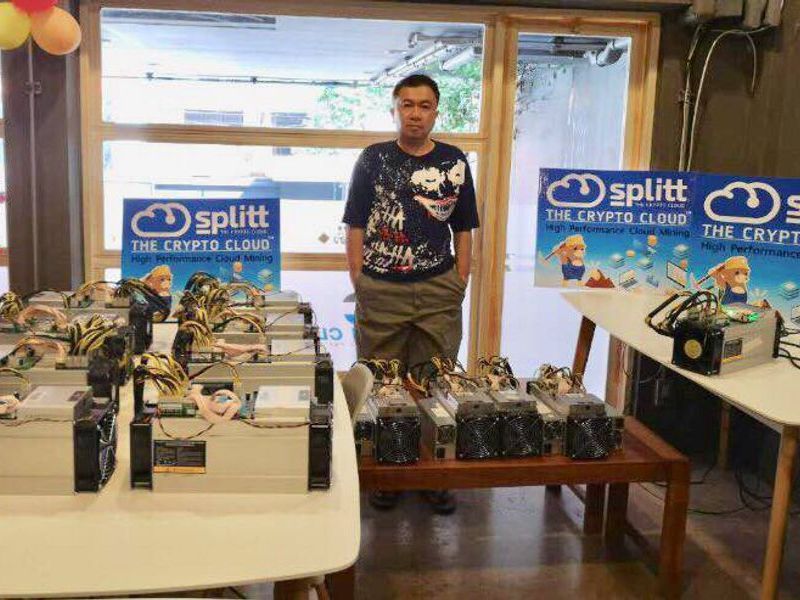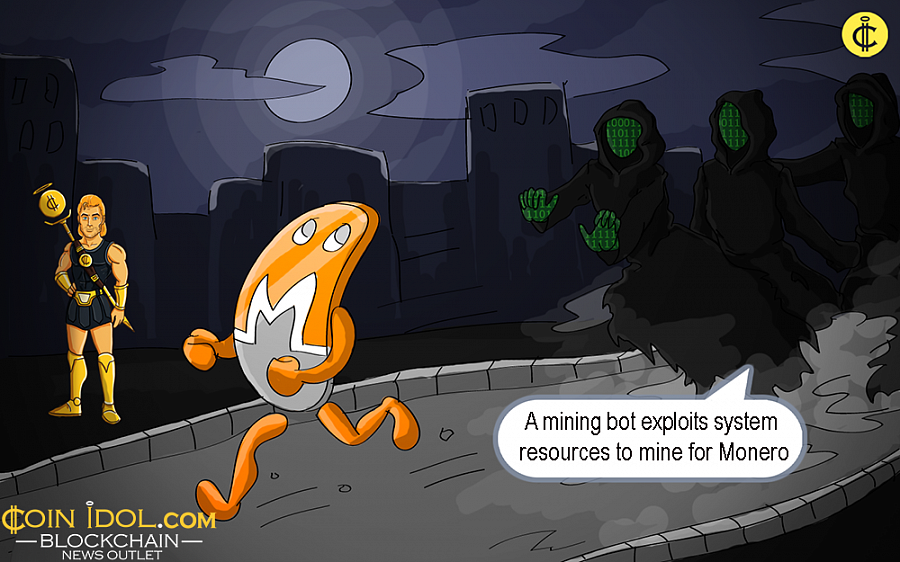Harbor launches security token compliance platform with digitized real estate shares
Source: CoinDesk
Blockchain startup Harbor has officially launched its security token compliance platform and is moving to offer digitized shares in a high-rise building located in in South Carolina.
Announced Tuesday at CoinDesk’s Consensus: Invest event, Harbor is now allowing investors to register to buy shares in apartment block called The Hub at Columbia, owned by the real-estate wing of DRW Holdings, Convexity Properties. There are 955 shares – represented by 955 tokens – available at a cost of $21,000 apiece.
The company, which raised $28 million earlier this year, develops ERC-20 tokens, an ethereum standard, for companies that want to put up equity or other forms of interest by way of a tokenized offering.
Harbor CEO Josh Stein told CoinDesk that the company’s platform allows it to track security token trading and investors’ real-world identity in real-time, ensuring that token sales are “compliant every time, everywhere.”
Offerings on Harbor’s security token platform operate similarly to a normal private placement sale, he explained. The key difference comes from the platform’s use of a blockchain protocol and structure, which allow companies to tap into a wider pool of investors.
Typically, an offering like Convexity’s might be sold to 10 or 20 investors, each of whom would have to contribute a significantly larger chunk of the total funding. Harbor’s platform makes it easier for anywhere from 100 to 2,000 accredited investors to participate, allowing each a $21,000 minimum stake, which is smaller...
ConsenSys & Two Sigma Ventures invest $8 million in crypto custody startup
Source: CCN

Venture firm Two Sigma and Ethereum development studio ConSensys have invested $8 million into digital asset custody solution provider Trustology, Business Insider reports. Both investors would be joining Trustology’s board of directors.
London based Trustology, known for developing the TrustVault, a crypto management service that safeguards private keys by keeping them in “tamper proof, programmable hardware security modules hosted in secure data centers, with encrypted backups in the cloud.”
“Trustology’s unique blend of people, process, and key management technology offer industry defining digital asset security with speed of access and unrivaled ease of use. Trustology aspires to be the digital assets brand of the future,” Alex Batlin, Trustology’s Founder and CEO explained in the press release.
The funding from the investors is expected to be used to create new products, support more digital assets classes and attract international customers for its services.
Joe Lubin, Founder of ConsenSys, hailed Trustology, as he believes the startup is going in the right direction.
“By prioritizing security without the need to...
City of Zug Named Fastest Growing Tech Hub in Europe
Author: Jeffrey Gogo / Source: Crypto Radar

The city of Zug, home of the Swiss Crypto Valley, has been named the fastest growing technology community in Europe. Zug ranked atop the “State of European Tech” report by London-based global investment firm Atomico last week, on the strength of its year-on-year growth of attendees to tech-related meetup events.
Also read: Malaysian Financial Regulators to Intensify Scrutiny of ICOs, Cryptocurrencies
Zug Tech Ecosystem Grows
According to the report, Zug recorded a 177 percent increase in the number of tech meetups in 2018, compared to last year. The city’s crypto activity has been warmly supported by the Swiss government, which is fine-tuning its legislation and policies to improve financial innovation, with particular emphasis on virtual currencies.
“There is a huge geographic diversity among the top 20 fastest-growing tech hubs in Europe, as measured by the annual growth in attendees to tech-related meetup events in those cities. Zug in Switzerland, home to a growing crypto community, ranked number one as the fastest-growing community overall,” the report said.

Novosibirsk in Russia follows Zug with 173 percent increase in tech meetups, while Ghent (Belgium), The Hague (Netherlands) and Katowice (Poland) complete the top 5 of the fastest-growing tech communities.
Novosibirsk has reported startup activity in its science and technology hub, Akademgorodok, also known as the Siberian Silicon Valley. Success stories out of the suburb include nanotechnology firm Ocsial, precision laser manufacturer Tekhnoscan and banking software company CFT.
The Atomico report emphasized community-building, measured by the meetups of technological talent, as necessary for attracting investment to cities. This year, the density of meetups in Europe equated around 200 events per day throughout the year.
Progressive Switzerland
Switzerland has taken a progressive stance towards cryptocurrency, legalizing its...
Messari launches disclosure registry for cryptocurrency projects
Source: CoinDesk
Messari, an open-source cryptocurrency focused version of the U.S. Securities and Exchange Commission’s EDGAR database, is launching a disclosure registry for token-issuing projects to publicly share information that might otherwise be difficult to find.
The registry, announced Tuesday at CoinDesk’s Consensus: Invest event, will share a range of typically non-public information, including token design, supply details, any audits of the technology, official communication channels, treasury management and details of team members.
Messari founder Ryan Selkis told CoinDesk that the platform is aimed at both standardizing and automating such information disclosures, making it easier for investors or casual observers to learn more about projects of interest.
“What we’re trying to do is make key information about these various crypto assets available to anyone, whether it’s a retail investor, a regulator, an academic or a mutual fund,” he said, adding:
“The most important thing for us is ushering in an era where that is the standard, versus today’s standard which is driven by information asymmetry and insiders, where...
Emerging cloud server cryptocurrency mining service Splitt's rapid growth
Author: Guest Author / Source: coinidol.com

Recently launched cloud server cryptocurrency mining service, Splitt is now making the heads turn in the global crypto community. Designed to make cryptocurrency mining user-friendly and safe for all, Splitt has secured an investment of well over $5 million from more than ten thousand investors over the last three months.
Splitt, a recently launched cryptocurrency mining service equipped with a cloud server, is now taking giant strides towards becoming a highly preferred choice amongst the crypt mining enthusiasts around the world. Following its mega launch in August, Splitt has done well to secure close to one hundred thousand users and ten thousand investors in less than three months. Official sources have revealed that the company has already received an investment of more than five million for further development of the business.
As a result of drastic increase in the number of miners, bitcoin mining has become extremely competitive these days. Along with this growing competition, the bitcoin network has increased the difficulty level of solving the puzzles. As a result, it has become necessary now for the miners to up their game to stay in the race.
The crypto cloud of Splitt meets these challenges by offering mining services with ASIC integrated chips. This is considered to be the latest breakthrough in crypto mining because it is faster compared to the traditional GPU and CPU mining, and consumes less power. Splitt cloud mining requires no specialized hardware as it utilizes shared processing power from data centres.
Thousands of users have recommended Splitt as their crypto mining alternative because of the following features.
- Flexible multi-algorithm cloud mining
- No pool fees, no waiting for equipment and no system crashes
- Hashpower is purchased and is retained for the whole contract duration.
- Dedicated to transparency and discloses everything to the public
- The company can be located easily and its representatives attend a number of events regularly
- Mining a number of different cryptocurrencies from scrypt and proof of work algorithm coins as well as ASIC and GPU...
Security tokens from Zurich’s Cryptosummit
Author: Andrea Bianconi / Source: Hacker Noon


One of the key events of the year took place last week in Zurich´s “Crypto Valley”. The Cryptosummit was — for me — both engaging and stimulating because the broad focus and main topic of it was the tokenization of securities, which is where — with Untitled-INC — I am more involved.
Among the high level speakers were ConsenSys Joseph Lubin in video streaming, Charles Hoskinson, CoinDesk´s Michael Casey, VC investor Jalak Jobanputra, Outlier Venture´s Jamie Burke and many other top businesspeople.
Of course, with such a packed agenda and thought-provoking panels running simultaneously on 3 stages, I had to make a choice and follow only those which were — for me at least — the most compelling. Most certainly I have missed interesting stuff, but the following were for me the key “take-aways” from the event.
Charles Hoskinson, formerly Ethereum CEO and currently at Input Output HK, gave me comfort that the global adoption path of crypto is nowadays irreversible. He captivated the audience mentioning his experiences while travelling for crypto projects in lands such as Mongolia where — perhaps not surprisingly — cryptocurrency adoption is progressing at a faster rate than in many western countries. He emphasized that Securities Token Offerings (STOs) will be the key instrument for driving the growth and capital allocation to developing countries. This is the first time in history that developing countries are not constrained in accessing capital for development. And of course this will be a radical shift for those countries which will have the unique opportunity to free themselves from the chokehold of western powers and financial institutions such as the IMF. For the first time in history those countries can now sell tokenized bonds backed up by their commodities and rare earth resources, without the need to sell them out to multinationals in exchange of “peanuts”. The first time in history that they can access a global, decentralized market of investors to fuel their growth. I find this is pretty exciting.
Juwan Lee, founder and CEO of Nexchange, presented interesting datasets to show where crypto investments stand today when compared with the hedge funds in the 90s. Crypto investments stand today where the hedge funds sector stood back in 1997, at the very beginning of its growth phase. Since then the hedge fund sector has grown in volume more than 15 times, going from the early phases, through institutionalization, consolidation and finally to the current maturity phase.
Crypto funds are also still quite minuscule in terms of managed funds. The large majority (approx. 208) have less than US$10m under management. Only the largest funds — approx. 28...
Central Bank of Japan says issued digital currencies are not effective economic tools
Author: Helen Partz / Source: Cointelegraph

The Bank of Japan’s (BOJ) deputy governor Masayoshi Amamiya has recently reiterated his negative stance towards central bank-issued digital currencies (CBDC), the New York Times reports Oct. 20.
Speaking on Saturday at a meeting in Nagoya, central Japan, Amamiya expressed doubts about the use of CBDCs, claiming that such digital currencies are unlikely to improve the existing monetary systems. Amamiya also stated that the BOJ does not plan to issue digital currencies.
The article reports that some financial experts consider a CBDC as a tool for central banks to control the economy once interest rates fall to zero. According to this theory, a CBDC would enable central banks to stimulate the economy by charging more interest on deposits from individuals and firms, which would in turn induce them to spend more money.
Amamiya has questioned that theory, claiming that charging interest on central banks-issued currencies...
Adobe Flash Malicious Malware Includes Crypto Mining Software
Author: Author
Coin Idol / Source: coinidol.com

Agreed, Adobe Flash still works, regrettably, and that means it's still employed as a method to target ignorant users with malicious malware. As you would think, the latest malware to attract big attention masks itself as an update to Flash to trick users into installing malevolent software.
Now, the malware is a digital currency mining bot which exploits system resources to smoothly mine for Monero. The most interesting part is that the software updates the Flash software.
The Fake Updater
Revealed by experienced researchers at Palo Alto Networks, a security company, the fraudulent Flash updater has been circulating from one place to another...
Plattsburgh New York considers rolling out tougher rules for crypto miners
Author: Yogita Khatri / Source: CoinDesk
Plattsburgh, New York, is considering bringing in stricter requirements on commercial cryptocurrency mining farms operating in the city.
Patrick McFarlin, a councilor of Plattsburgh's Common Council, proposed a new law last week that aims to introduce "zoning regulations" for commercial crypto mining activities. According to an update from the council Friday, a public hearing will now be held on Oct. 25 to determine whether to follow through with the proposal.
The suggested zoning rules cover a variety of categories such as fire safety, heat, nuisance abatement and special use permits. If approved, crypto mining farm operators in the city would immediately be required to keep the ambient temperature inside their facilities within 120 degrees Fahrenheit (48.8 degrees Celsius) at any time.
Should the average daily temperature outside the facilities be less than 40 degrees F (4.4 degrees C), mining farm operators must ensure that "no more than...
Philippines deports $33 million Bitcoin pyramid scheme mastermind
Author: Bitcoin Crime / Source: CCN

The Bureau of Immigration of the Philippines had ordered the deportation of a South Korean national who is wanted in South Korea over his involvement in a bitcoin pyramid scheme.
Identified as Go Yongsung, the South Korean was arrested in the city of Las Pinas. According to Jaime Morente, a Bureau of Immigration Commissioner, the arrest was conducted by the Fugitive Search Unit of the government agency. A warrant had already been issued by a district court in South Korea for his arrest prior to his capture, according to Manila Bulletin.
Per documents obtained from the authorities, Go and other accomplices defrauded South Koreans of over US$33 million by promising huge returns if they invested in bitcoin between December 2015 and June 2016. According to the authorities Go, who is 48, used a firm which was operating in Pasay City as a front in his fraudulent scheme.
Crackdown on Fugitives of Justice
After the arrest, Morente warned that the bureau would not relent in its efforts to ensure criminals faced justice regardless of which jurisdiction they committed their crimes...











